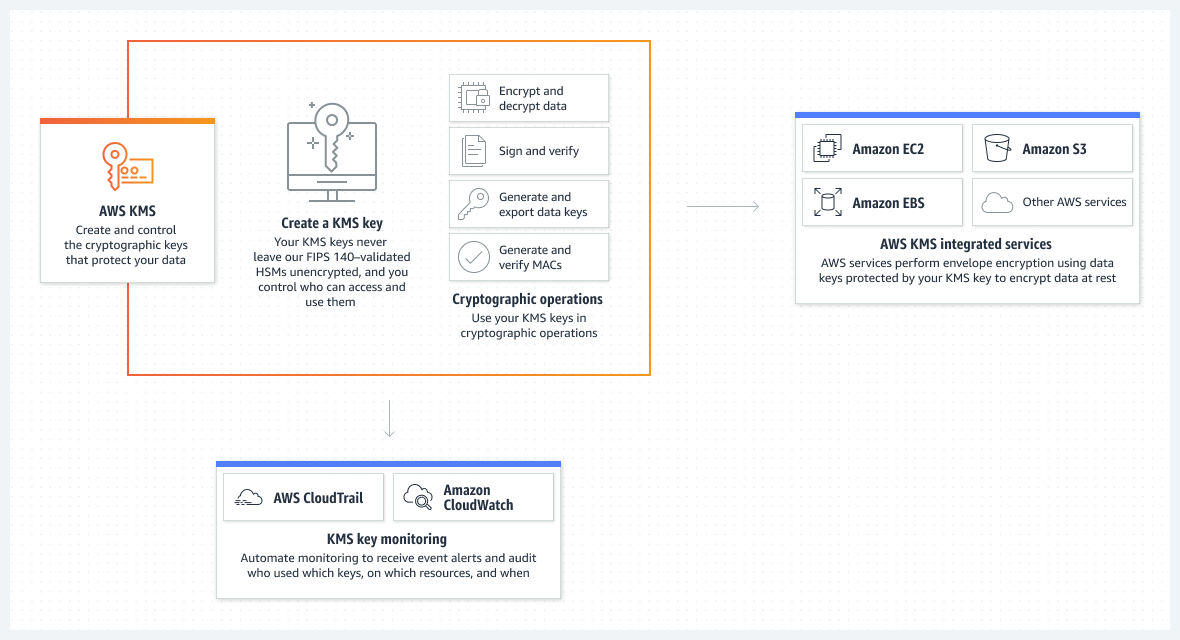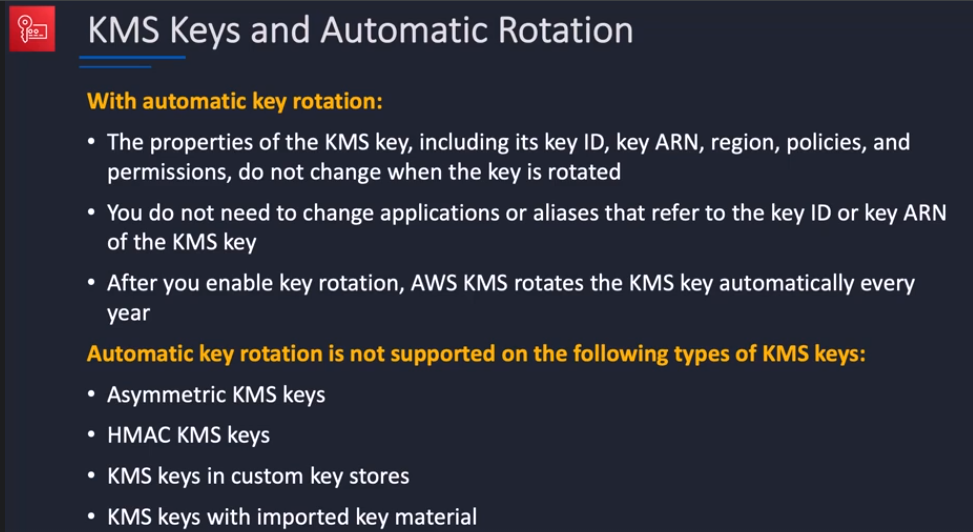# KMS
#cloud #aws #security
AWS Key Management Service (AWS KMS) lets you create, manage, and control cryptographic keys across your applications and more than 100 AWS services. These keys could be used for Encryption as well as a form of Authorization of the users/services. It can manage both Symmetric and Asymmetric Keys
The KMS keys are protected by hardware Security modules (HSMs).

# KMS Keys
They were previously known as Customer Master Keys (CMKs) and are the primary resources in AWS KMS. It contains the main key to encrypt and decrypt the data.
- By default AWS KMS will create the key materal for a KMS key
- You can also import your own key
- A CMK can encrypt data up to 4KB in size
- You can generate, encrypt and decrypt Data Encryption Keys (DEKs)
# Alternative Key Stores
External Key Store
- Keys can be stored externally to meet regulatory requirements
- A key can be created in an AWS KMS external key store (XKS)
- Keys are generated and stored in an external key manager
- When using XKS, key never leaves HSM
- Can create KMS keys in AWS CloudHSM custom key store
- All keys are generated and stored in CloudHSM self managed cluster
- Not available for Asymmetric keys
- Cryptoigraphic operations are done on AWS CloudHSM cluster that you own
# AWS Managed KMS Keys
These keys are created, managed and used on your behalf of AWS. You cannot manage them manually as well as cannot be used in custom cryptographic operations directly.
# Data Encryption Keys
- Data keys are encryption keys that you can use to encrypt data, including large amounts of data and other data encryption keys
- You can use AWS KMS customer master keys (CMKs) to generate, encrypt, and decrypt data keys
- AWS KMS does not store, manage, or track your data keys, or perform cryptographic operations with data keys
- You must use and manage data keys outside of AWS KMS

# Key Rotation
